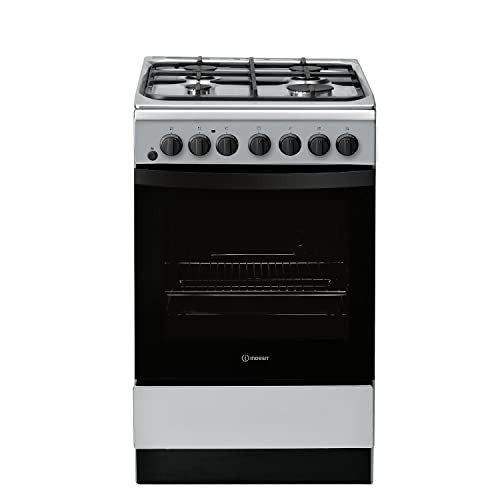The Comprehensive Guide to Sales Ovens: Understanding Their Importance, Types, and Best Practices
Sales ovens, a classification of business cooking equipment, are key gamers in the cooking and foodservice market. These devices, designed to prepare food in big quantities efficiently, are important in dining establishments, catering services, and other food establishments. This post delves into the importance of sales ovens, their types, and best practices for choosing and utilizing them successfully.
What Are Sales Ovens?
Sales ovens, broadly specified, are cooking gadgets utilized mainly in commercial cooking areas to cook, bake, or heat various food items at scale. Oven Hobs permits them to deal with greater volume cooking compared to standard property ovens. Offered the nature of food service, sales ovens often incorporate sophisticated technologies that promote speed, efficiency, and even cooking.
Importance of Sales Ovens in the Food Industry
Sales ovens play a pivotal function in food production for lots of factors:
- Efficiency: Sales ovens can cook food faster and equally than conventional ovens, allowing chefs to prepare meals in less time.
- Consistency: With exact temperature level controls, sales ovens guarantee that the food is prepared evenly each time, maintaining quality across thousands of servings.
- Adaptability: Many sales ovens can handle different cooking techniques including baking, roasting, broiling, and even steaming, making them ideal for varied menus.
- Energy Savings: Modern sales ovens are typically created to be energy-efficient, minimizing operational costs for businesses.
Types of Sales Ovens
The market offers a variety of sales ovens, each fit for specific cooking requirements and kinds of food. Here are the most typical types:
| Type of Oven | Description | Best For |
|---|---|---|
| Convection Ovens | Utilize a fan to distribute hot air, ensuring even cooking. | Baking and roasting items. |
| Combi-Ovens | A combination of convection and steam cooking, offering flexibility in cooking approaches. | Varied menus needing steaming and baking. |
| Conveyor Ovens | Use a moving belt to constantly prepare food, perfect for high-volume operations. | Quick food and pizza. |
| Deck Ovens | Function separate compartments (decks) that can be individually managed, providing high efficiency. | Artisan bread and pastries. |
| Rotisserie Ovens | Designed to gradually roast meat on a spit, offering tender and juicy results. | Roasted meats. |
Picking the Right Sales Oven
Picking the suitable sales oven for a particular service requires consideration of numerous elements:
- Volume Needs: Assess the volume of food that needs to be prepared. Greater volume indicates going with conveyor or combi-ovens.
- Menu Diversity: Understanding what type of meals will be prepared can direct the selection procedure. For example, a bakeshop may require a deck oven, while a diner might benefit from a convection oven.
- Space Availability: Measure kitchen space to ensure the ovens fit correctly and have required ventilation.
- Spending plan: Commercial ovens can differ significantly in price, so develop a budget that considers long-lasting functional cost savings.
- Energy Efficiency: Opt for ovens that have energy rankings to keep energy expenses workable.
Best Practices for Using Sales Ovens
Successfully running a sales oven includes more than easy use. Here are some best practices to bear in mind:
- Regular Maintenance: Schedule routine upkeep to clean and inspect the performance of the oven. This guarantees longevity and performance.
- Preheating: Always preheat the oven to the desired temperature level before positioning food inside for consistent cooking results.
- Utilize Thermometers: For accuracy, utilize an oven thermometer to make sure that temperature levels remain consistent, specifically for baking.
- Follow Cooking Times: Adhere to advised cooking times based upon the kind of food being prepared. Modifications may be needed for various ovens.
- Avoid Overcrowding: Ensure sufficient area around food products in the oven to enable correct air flow.
The Future of Sales Ovens
As innovation advances, so do the abilities of sales ovens. Innovations such as wise innovation, energy-efficient styles, and enhanced safety functions are ending up being more prominent. These developments assure to boost cooking performance while also meeting sustainability objectives.
Frequently Asked Questions about Sales Ovens
Q1: How do I clean my sales oven?
A: Regular cleaning involves eliminating any food particles, cleaning down surface areas with non-corrosive cleaners, and following particular cleaning recommendations from the maker.
Q2: What's the lifespan of a business oven?
A: Typically, a properly maintained industrial oven can last anywhere from 10 to 20 years, depending on usage and maintenance.
Q3: Can sales ovens be used for baking?
A: Yes, numerous types of sales ovens, especially convection and deck ovens, are specifically designed for baking a series of products.
Q4: Are there energy-efficient options for sales ovens?
A: Yes, a number of manufacturers provide energy-efficient designs that minimize energy intake without sacrificing performance.
Q5: How often should I carry out upkeep on my sales oven?
A: It's suggested to carry out routine maintenance checks on a monthly basis or quarter, depending on use levels. In addition, a comprehensive inspection needs to take place at least yearly.
Sales ovens are essential in the contemporary cooking landscape. Their ability to cook big amounts of food efficiently makes them important for dining establishments, catering services, and other food establishments. By comprehending the different types, selecting the ideal oven, and adhering to best practices, food service businesses can optimize their cooking processes, boost their offerings, and ultimately delight their consumers with outstanding culinary productions.

